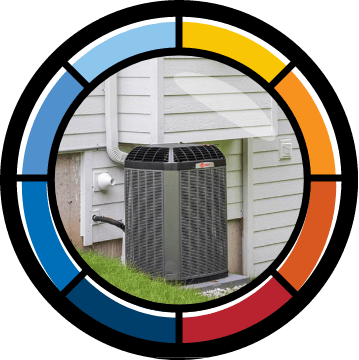HVAC Repair Services
Heating and cooling systems are intricate networks that maintain a comfortable environment in your home. With time and regular use, these systems might experience wear and tear and may need repair or replacement. Knowing what signs to look for can help you identify problems early on.
Excessive noise, uneven cooling or heating, and an unexpected spike in energy bills are usually clear indicators that your HVAC system requires attention. A well-functioning system operates quietly and delivers consistent temperature throughout the home.
If you start to notice drastic temperature variations from room to room, it’s an indication that your system isn’t working optimally.
A sudden increase in your energy bills could also signal a problem with your heating and cooling system. This often means that the system is working harder than it should to maintain the desired temperature, indicating possible inefficiencies.
An HVAC repair professional will be able to assess the condition of your HVAC system and give you a better understanding of its current performance.
Heating and Cooling Installation Services
Choosing to install a new heating or cooling system over an existing one can be a more viable option in certain circumstances. If your system is old, requires frequent repairs, or struggles to maintain consistent temperatures, investing in a new, energy-efficient system might be more cost-effective in the long run.
While the upfront cost of installation may be higher, the savings on energy bills and repair costs over time can offset this initial investment.
As for the frequency of installations, it largely depends on the life expectancy of your HVAC system. Life expectancy for HVAC systems typically ranges from 15 to 20 years for heating systems and 10 to 15 years for cooling systems. However, this can vary based on the model, usage, and maintenance of the system.
The installation options available largely depend on your specific needs. For heating, options can range from furnaces and heat pumps to boilers, while cooling systems typically involve central air conditioners or ductless mini-split systems.
The best option for your home depends on a variety of factors, including your climate, the size and design of your home, and your budget. An HVAC professional can provide expert guidance to ensure you choose the most suitable system for your needs, optimizing comfort and efficiency in your home.





